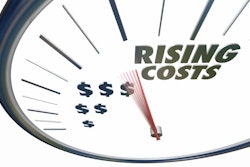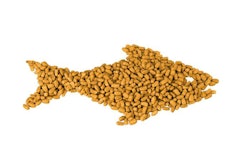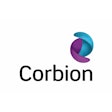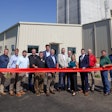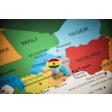Supports a safe, healthy and sustainable animal-based food chain
The European Fat Processors and Renderers Association (EFPRA) launches its Sustainability Charter to support a safe, healthy and sustainable animal-based food chain.
The rendering industry has long been an example of sustainability in action. Renderers recover and recycle valuable materials from by-products and ensure that nothing goes to waste. Now, with ever greater focus on reducing the environmental impact of food production, EFPRA has set out how renderers will continue to contribute to a more sustainable economy.
“The time is right for EFPRA to be more explicit about our sustainability credentials,” says EFPRA President Sjors Beerendonk. “Policies in the EU Green Deal, Farm-to-Fork Strategy and UN Sustainable Development Goals (SDGs) all require businesses to develop sustainable products and services. Companies that align sustainable business models with the SDGs can unlock significant value in current and emerging markets”
Rendering’s unique role in the food chain means it is well positioned to spearhead the transition to a low-carbon circular future, fixed in renewable natural resources. The Sustainability Charter examines how rendering companies can build on their longstanding sustainability credentials to benefit climate, health and society in line with the UN SDGs.
“The concept of a ‘Circular Bioeconomy’ is central to the Charter,” says Richard van Lijssel, chairman of the EFPRA Sustainability Committee. “What that means is that residues from renewable biological resources are converted into value added products such as food, feed or energy.”
Van Lijssel emphasises the essential role rendering plays in meat and dairy production. Every year, EFPRA members handle 18 million tons of by-products to make them safe. Farmers can concentrate on producing healthy food, while renderers manage by-products, preventing animal diseases and creating value-added products.
“Throughout the charter we examine how rendering can provide high added-value products which deliver greater economic and social benefits. Examples include specialist ingredients for pharmaceuticals, and feed for pets and livestock which maximises nutrient retention in the food chain.
“Of course, there are certain by-products that cannot safely returned to the food chain, but the charter has several case studies of how energy is recovered and used for heating and power generation. Wasting nothing has always been a principle of our industry.”
Climate
There are two main ways to reduce the impact of producing food: cut the resource intensity of production or get more from the finished product. Rendering does both by taking by-products and creating low carbon feed ingredients and fuels.
“GFLI Studies show the carbon footprint of rendered fat and Processed Animal Protein (PAP) is lower than that of imported palm oil and soybean meal which are widely used in European food production. Increasing use of rendered products can close the so called ‘protein gap’ making us more self-sufficent in food and lower the greenhouse gas emissions linked with livestock production.”
Health
“The launch of the Sustainability Charter coincides with the reapproval of PAPs in pig and poultry diets. PAPs are an excellent feed ingredient with a good nutritional profile for omnivorous and carnivorous animals. EFPRA is working with Wageningen University to better understand optimal inclusion rates and animal health benefits of using PAPs.”
The rendering industry provides a range of other sustainable food, feed and specialist ingredients. Edible co-products are turned into edible fats such as lard and dripping. While rendered fat, blood products and gelatine are all excellent feed ingredients with a low environmental impact. Pharmaceutical materials and health supplements are also derived from animal by-products using specialist processes.
Society
The animal by-product reprocessing industry makes a significant contribution to the well-being and success of the entire food and agricultural industry. Farmers and food retailers rely on us to handle waste and unwanted material. This vital service creates a sustainable business environment for a plethora of small and large food enterprises.
EFPRA members also make a direct contribution to people’s lives through employment and by providing sustainable heat and power for communities located near to rendering facilities.


